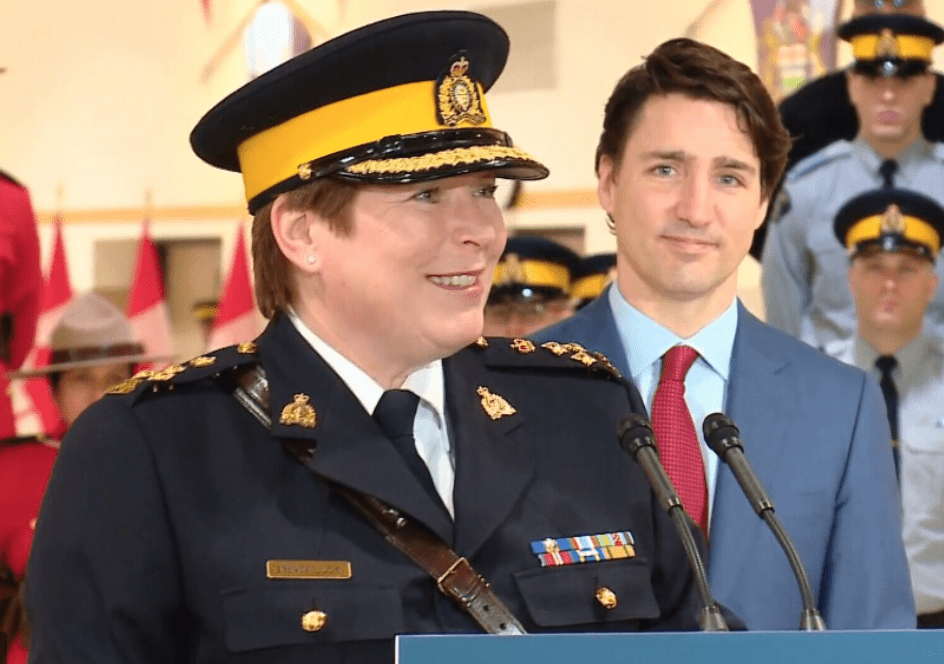Over the past couple of weeks, as the conversation about systemic racism and defunding/abolishing police takes hold as part of the national discourse, there are all kinds of demands for the federal government to take immediate action to deal with the problem. Of course, the problem being systemic and ingrained in the very foundations of many of our institutions, there won't be any quick fixes, and certainly none that will be an overnight success. Nevertheless, there are some things that prime minister Justin Trudeau and his Cabinet should start discussions about, particularly with the provinces, as they are going to bear a lot of this responsibility. A big part of that will be about changing the role of the RCMP.
Currently, the RCMP is responsible for the front-line policing in eight provinces and all three territories in a contract capacity the provinces haven't developed police forces of their own, and rely on the RCMP to do the job for them. If we are going to be serious about radically transforming the way that policing works in this country, this would be the opportunity for Trudeau to change all of that by ending the practice of contract policing. The practice has been controversial for decades and often defended with the notion that there is a lot to be gained organizationally by having a national police force that operates at all levels like it does. But given that the entire model is built upon racist construction its predecessor, the North-West Mounted Police, was designed to prepare the prairies for colonization by white settlers in a way that didn't involve the wholesale slaughter of the First Nations as happened in the United States (and I believe the historical record shows more incidents of the NWMP protecting Indigenous people from settlers than the other way around) then perhaps it's time to start over again.
Ending contract policing would give provinces time to develop their own local policing models that are more in line with the particular values that we are hearing calls for, that would focus on relationship-building within communities than on enforcement and filling quotas the kinds of things that lead to over-policing to begin with. These new policing forces can also begin with ground-up training in de-escalation and anti-racism that have not penetrated with the current models, where the focus is on establishing dominance, which is what leads to escalation and the death of so many Black, Indigenous, and other racialized minorities. It also allows provinces to shift funds from over-policing to properly funding healthcare particularly mental healthcare as well as education, housing and other social services that can steer people away from criminal behaviour. These are, after all, areas of provincial jurisdiction that Trudeau can do very little about.
Federally, it can help move resources toward creating culturally appropriate Indigenous police forces across the country where they are needed, which to be fair, the government has been moving on in consultation with Indigenous communities, but setting a deadline for ending contract policing and a handover to new forces could light a fire under the bureaucracy. It would also end the practice of sending rookie Mounties out to First Nations reserves to "train them," which has led to many of the problems we are currently facing in this country.
It should be noted that there will still be a federal role for the RCMP, or a successor organization if we plan to abolish it entirely, which has to do with areas of particular federal jurisdiction things like commercial crime, counterfeiting, drug trafficking, border integrity, organized crime, dealing with domestic terrorism, and the protection of members of the Royal Family, the prime minister and certain Cabinet ministers, and other visiting dignitaries. Much of this reduced role doesn't involve the front-line policing that has caused so many needless deaths, but would still need revamping (and a whole other column or thesis could be written on the racism inherent in policing drugs), particularly when it comes to profiling at the border and in domestic terrorism.
The other important aspect of being able to rebuild both local and federal policing is the ability to build it with proper civilian oversight from the ground up, which would also be a good time for the federal government to abandon its legislation to bring CBSA under the same impotent Civilian Review and Complaints Commission that the RCMP employs, given that the RCMP are free to ignore its recommendations. Add to that, the current proposal would simply continue to allow CBSA to investigate itself and report the results to the CRCC, rather than having an independent investigative body (and yes, the CBSA also has a massive problem with systemic racism, and this could be a good opportunity to overhaul it as well).
There will be calls over the coming weeks to insist on body-worn cameras for the RCMP, but that would wind up being fairly antithetical to the notion of radical transformation, and would mean sinking even more resources into the current policing model rather than in transforming it into something more sustainable and less lethal not to mention that there are ways for police to get around them, and as one Toronto lawyer put it, "The solution isn't to give them toys that allow the world to watch them kill us — it's to remove their power to kill us."
It is worth remembering, however, that even if Trudeau announced this plan tomorrow, it would take years for it to come to fruition. It takes time to build capacity, both in building new police forces, as well as within the mental health and social service providers who will be picking up the work that they should be doing currently instead of the police. But it has to start somewhere, and Trudeau has the opportunity to kickstart this transformation if he wanted to. The first step could be in setting a date to end contract policing, and moving forward with the provinces on a nation-rebuilding project that will dismantle the tools of systemic racism in the country.
Photo Credit: CTV News








